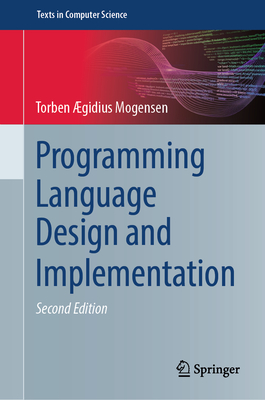相關主題
商品描述
Early in the book the author introduces a simple notation, a meta-language, used to record descriptions of the semantics of languages. In a practical approach, he considers dozens of issues that arise in current programming languages and the key techniques that must be mastered in order to write the required formal semantic descriptions. The book concludes with a discussion of the eight key challenges: delimiting a language (concrete representation), delimiting the abstract content of a language, recording semantics (deterministic languages), operational semantics (non-determinism), context dependency, modelling sharing, modelling concurrency, and modelling exits.
The content is class-tested and suitable for final-year undergraduate and postgraduate courses. It is also suitable for any designer who wants to understand languages at a deep level. Most chapters offer projects, some of these quite advanced exercises that ask for complete descriptions of languages, and the book is supported throughout with pointers to further reading and resources. As a prerequisite the reader should know at least one imperative high-level language and have some knowledge of discrete mathematics notation for logic and set theory.
商品描述(中文翻譯)
這本書旨在描述程式語言的意義。作者教授撰寫語義描述的技能,這是一種有效理解語言特性的方式。雖然編譯器或解釋器提供了一種語言的正式描述,但這並不能作為推理該語言的基礎,也無法作為程式語言本身的定義,因為這必須允許多種實作。透過撰寫語言的正式語義,設計者可以產生更簡短的描述,並分析、記錄設計選擇。
在書的早期,作者介紹了一種簡單的符號系統,一種元語言,用於記錄語言語義的描述。在實務方法中,他考慮了當前程式語言中出現的數十個問題,以及為撰寫所需的正式語義描述必須掌握的關鍵技術。書的結尾討論了八個關鍵挑戰:界定語言(具體表示)、界定語言的抽象內容、記錄語義(確定性語言)、操作語義(非確定性)、上下文依賴性、建模共享、建模並發性和建模退出。
內容經過課堂測試,適合最後一年本科生和研究生課程。它也適合任何希望深入理解語言的設計者。大多數章節提供專案,其中一些是相當進階的練習,要求對語言進行完整的描述,整本書也提供了進一步閱讀和資源的指引。作為先決條件,讀者應該至少了解一種命令式高階語言,並對離散數學的邏輯和集合論符號有一定的了解。
作者簡介
作者簡介(中文翻譯)
克里夫·B·瓊斯教授是紐卡斯爾大學的計算科學教授。他以研究電腦系統設計和驗證的「形式方法」而聞名;在這個領域,目前的研究主題包括並發性、支援系統和邏輯。他目前也將形式方法的研究應用於更廣泛的可靠性問題。除了他的學術生涯外,克里夫在業界工作了超過二十年;他在IBM的十五年期間,參與了維也納實驗室VDM的創建,這是較為知名的「形式方法」之一。他在牛津大學獲得博士學位,指導教授是托尼·霍爾。他隨後直接轉到曼徹斯特大學擔任教授,並建立了一個世界級的形式方法研究小組。他是英國皇家工程院院士(FREng)和ACM院士。自1973年以來,他一直是IFIP工作組2.3(程式設計方法論)的成員,並於1987年至1996年期間擔任該小組的主席。













